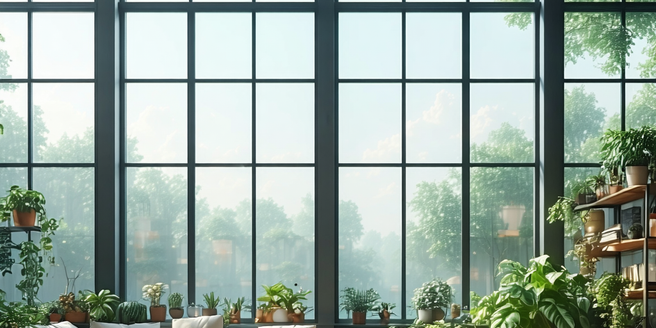Inexpensive Tinting Benefits

Understanding Window Tinting Basics
Window tinting is the application of a thin film to glass surfaces, typically on cars or buildings, to reduce heat and glare. This process provides numerous benefits, such as improved comfort and energy efficiency. The tinting film is available in various shades and materials, each designed to offer specific advantages. Lightly tinted films may allow more natural light while providing minimal heat rejection, whereas darker tints can offer superior heat dissipation. Understanding the basics of window tinting helps individuals choose the right film for their needs. By considering the primary purposes, such as UV protection, privacy, or aesthetic improvement, consumers can make informed decisions. Consequently, exploring the different types of films and their specific benefits ensures that they meet performance expectations while adhering to local regulations on permissible light transmission levels.
Cost-Efficiency: Saving Money with Tinting
One of the most appealing aspects of window tinting is its cost-efficiency, which can lead to significant savings over time. Tinted windows reduce the need for air conditioning by blocking a substantial amount of solar heat. This can result in lower energy bills, especially during hotter months. Moreover, by minimizing the use of air conditioning, households and businesses also decrease their carbon footprint, contributing to environmental sustainability. Additionally, window tinting helps protect interior furnishings and materials from fading due to UV exposure, potentially saving money on replacements and maintenance. While there is an upfront cost associated with professional tinting, the long-term savings often outweigh these initial expenses. Individuals should consider the balance of cost and benefits when investing in window tinting to make the most economical choice for their needs.
Enhancing Privacy and Security
Window tinting is an effective method to improve privacy and security in both residential and commercial settings. Tinted films obstruct views from the outside, making it more difficult for onlookers to peer into private spaces. This added layer of privacy is especially beneficial for ground-floor windows and locations close to busy streets or neighboring properties. From a security standpoint, window tinting can provide an extra layer of protection by holding shattered glass together in the event of a break-in or accidental impact. This can deter potential intruders and minimize the risk of injury from flying glass shards. Overall, window tinting offers practical solutions for those seeking to enhance the security and privacy of their properties without compromising on natural light or aesthetics.
Energy Efficiency and Climate Control
Window tinting plays a vital role in improving energy efficiency and climate control within homes and offices. By blocking a significant portion of solar heat, tinted windows help maintain a consistent indoor temperature, reducing the reliance on heating and cooling systems. This temperature regulation not only leads to substantial energy savings but also enhances occupant comfort by preventing hot spots or cold drafts. Tinted windows reflect and absorb sunlight, minimizing glare while still allowing natural light to brighten spaces. Such energy efficiency measures contribute to a lower carbon footprint, aligning with sustainability goals. Choosing the right tint can also help balance the amount of light and heat allowed in, tailoring the indoor environment to specific climate conditions and personal preferences.
Protecting Interiors from UV Damage
Tinted windows serve as a protective shield against harmful UV rays, safeguarding interior spaces and furnishings. Ultraviolet light can cause significant damage over time, including fading of fabrics, wood flooring, and artwork. Window tinting films are designed to block up to 99% of ultraviolet rays, thus preserving the quality and longevity of interior items. This protective benefit is particularly valuable in rooms with large windows or areas receiving direct sunlight throughout the day. By reducing UV exposure, occupants can enjoy their interiors without worrying about the sun’s detrimental effects. This long-term protection not only maintains the aesthetic appeal of furnishings but also reduces the need for costly replacements or repairs, making tinting a wise investment for homeowners and businesses alike.
DIY vs. Professional Tinting Options
When considering window tinting, consumers face the choice between DIY kits and professional installation. Each option has its merits, depending on the individual’s skill level, budget, and desired outcome. DIY kits are typically less expensive and can provide a sense of accomplishment upon completion. However, they require precision, as improper application can lead to bubbling or peeling, which undermines the film’s effectiveness. On the other hand, professional tinting, while more costly, offers a high-quality finish guaranteed by experienced installers. These professionals have the tools and expertise to apply the film without imperfections, ensuring longevity and optimal performance. Furthermore, professional services often include warranties, providing peace of mind. Ultimately, the decision comes down to balancing the benefits of professional expertise against the cost and personal satisfaction derived from a DIY project.